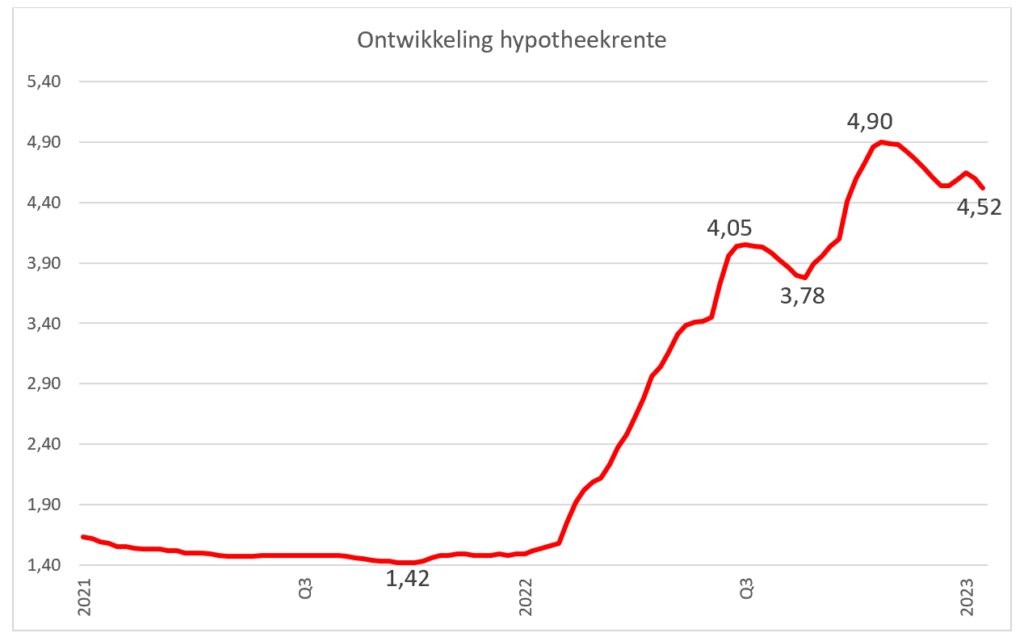Investor Analysis: Google's Progress And Potential In The AI Sector

Table of Contents
Google's Existing AI Infrastructure and Capabilities
Google's AI prowess isn't built on a single innovation; it's a vast ecosystem of interconnected capabilities. This section dissects the key components driving Google's AI dominance.
DeepMind's Contributions
DeepMind, a Google subsidiary, has consistently pushed the boundaries of AI with groundbreaking achievements.
- AlphaFold: Revolutionized protein folding prediction, accelerating drug discovery and biological research. This has significant implications for the pharmaceutical and biotechnology industries, potentially leading to substantial financial returns for Google.
- AlphaGo: Mastered the complex game of Go, demonstrating unparalleled AI capabilities in strategic thinking and problem-solving. This achievement solidified DeepMind's reputation and attracted further investment and talent.
- Other Achievements: DeepMind's work extends beyond games, contributing to advancements in areas like climate change modeling and energy efficiency. These contributions indirectly enhance Google's overall efficiency and reduce operational costs, leading to improved financial performance.
DeepMind's financial performance, while not always publicly disclosed in granular detail, is undeniably crucial to Google's overall AI strategy and long-term value. Its success represents a significant strategic asset for Google, ensuring its position at the forefront of AI innovation.
Google AI's Product Integration
Google seamlessly weaves AI into its core products, enhancing user experience and driving revenue growth.
- Google Search: AI powers advanced search algorithms, providing more relevant and personalized results. This increases user engagement and potentially boosts advertising revenue.
- Google Assistant: AI powers voice recognition, natural language processing, and task automation. Its integration across various devices expands Google's ecosystem and strengthens user loyalty.
- Google Cloud: Offers a suite of AI and machine learning tools, providing businesses with powerful capabilities for data analysis, automation, and innovation. This is a significant revenue stream for Google, competing directly with AWS and Azure.
This tight integration delivers a competitive advantage, creating a powerful network effect that strengthens Google's position in multiple markets simultaneously.
Google Cloud's AI Services
Google Cloud Platform (GCP) offers a comprehensive suite of AI services, directly competing with Amazon Web Services (AWS) and Microsoft Azure.
- Vertex AI: A unified platform for building, deploying, and managing machine learning models.
- Dialogflow: A powerful platform for building conversational interfaces and chatbots.
GCP's AI services boast strong growth potential, capitalizing on the increasing demand for cloud-based AI solutions. Strategic partnerships and collaborations with leading companies across various sectors further enhance Google's market reach and accelerate its growth within this competitive landscape.
Analyzing Google's AI Investments and Strategic Partnerships
Google's commitment to AI is evident in its substantial investments and strategic partnerships.
R&D Spending and Acquisition Strategy
Google dedicates significant resources to AI R&D, consistently ranking among the top global spenders.
- Yearly R&D spending in AI: While precise figures are not always publicly released, estimates consistently place Google in the billions of dollars annually.
- Key Acquisitions: Acquisitions like DeepMind demonstrate Google's proactive strategy to acquire cutting-edge AI technologies and talent. The ROI on these acquisitions is evidenced by DeepMind's contribution to Google's overall innovation and market positioning.
Analyzing the ROI of these investments requires a long-term perspective, considering the potential for future breakthroughs and market dominance.
Collaborative Efforts and Open-Source Contributions
Google actively collaborates with universities, research institutions, and other companies, fostering a vibrant AI ecosystem.
- Collaborations: Partnerships with leading universities and research institutions ensure access to top talent and cutting-edge research.
- Open-Source Contributions: Google's contributions to open-source AI projects accelerate innovation and expand the AI community, indirectly strengthening Google's overall influence and attracting talent.
This collaborative approach strengthens Google's position, fostering innovation and attracting top talent.
Future Potential and Challenges for Google in the AI Sector
While Google holds a strong position, several factors will shape its future success.
Growth Opportunities in Emerging AI Fields
Google is well-positioned to capitalize on growth opportunities in emerging AI fields.
- Generative AI: Google is actively developing and deploying generative AI models, potentially revolutionizing content creation and various other applications.
- AI for Healthcare: Google's AI capabilities have enormous potential in healthcare, improving diagnostics, drug discovery, and personalized medicine.
These emerging fields present significant growth opportunities, but also require careful navigation of ethical and regulatory landscapes.
Addressing Ethical Concerns and Regulatory Challenges
The ethical implications of AI are paramount. Google's commitment to responsible AI development is crucial for its long-term success.
- Responsible AI Development: Google actively addresses ethical concerns surrounding bias, fairness, and privacy in its AI systems.
- Regulatory Compliance: Navigating evolving AI regulations is crucial for Google's continued growth and market access.
Failure to address these concerns could result in significant setbacks, impacting investor confidence and Google's overall market value.
Competitive Landscape and Potential Threats
The AI landscape is highly competitive. Google faces challenges from established players and emerging disruptors.
- Key Competitors: Amazon, Microsoft, and other tech giants pose significant competition.
- Potential Disruptions: New technologies and innovative business models could disrupt Google's market position.
A thorough assessment of these risks is essential for investors considering Google's AI-related investments.
Conclusion: Investor Analysis: Google's AI – A Promising Future?
Google's significant investments, robust infrastructure, and strategic partnerships position it strongly in the AI sector. While competitive pressures and ethical considerations exist, Google's "Investor Analysis: Google's AI" reveals a company with substantial growth potential. The integration of AI into core products, coupled with advancements from DeepMind and strategic cloud offerings, creates a compelling investment case. However, investors should carefully consider the competitive landscape, regulatory risks, and the evolving ethical considerations within the AI field. Conduct further research, assess Google's AI-related investments, and stay updated on the latest developments in "Investor Analysis: Google's AI" to make informed decisions.

Featured Posts
-
 Le Boom Des Tours Nantaises Et L Essor De L Activite Des Cordistes
May 22, 2025
Le Boom Des Tours Nantaises Et L Essor De L Activite Des Cordistes
May 22, 2025 -
 Stijgende Huizenprijzen Abn Amros Verwachting Ondanks Economische Onzekerheid
May 22, 2025
Stijgende Huizenprijzen Abn Amros Verwachting Ondanks Economische Onzekerheid
May 22, 2025 -
 New Peppa Pig Theme Park Your Texas Family Vacation Destination
May 22, 2025
New Peppa Pig Theme Park Your Texas Family Vacation Destination
May 22, 2025 -
 Antiques Roadshow Couple Sentenced For Unknowing National Treasure Crime
May 22, 2025
Antiques Roadshow Couple Sentenced For Unknowing National Treasure Crime
May 22, 2025 -
 Little Britain Cancelled Yet Cherished By Gen Z Why
May 22, 2025
Little Britain Cancelled Yet Cherished By Gen Z Why
May 22, 2025
Latest Posts
-
 Massive Zebra Mussel Discovery On Casper Boat A Residents Report
May 22, 2025
Massive Zebra Mussel Discovery On Casper Boat A Residents Report
May 22, 2025 -
 Improving Otter Management Practices In Wyoming Challenges And Solutions
May 22, 2025
Improving Otter Management Practices In Wyoming Challenges And Solutions
May 22, 2025 -
 Zebra Mussel Infestation Discovered On Casper Boat Lift
May 22, 2025
Zebra Mussel Infestation Discovered On Casper Boat Lift
May 22, 2025 -
 Otter Conservation In Wyoming Navigating A Shifting Landscape
May 22, 2025
Otter Conservation In Wyoming Navigating A Shifting Landscape
May 22, 2025 -
 Casper Residents Unwanted Boat Lift Guests Thousands Of Zebra Mussels
May 22, 2025
Casper Residents Unwanted Boat Lift Guests Thousands Of Zebra Mussels
May 22, 2025
